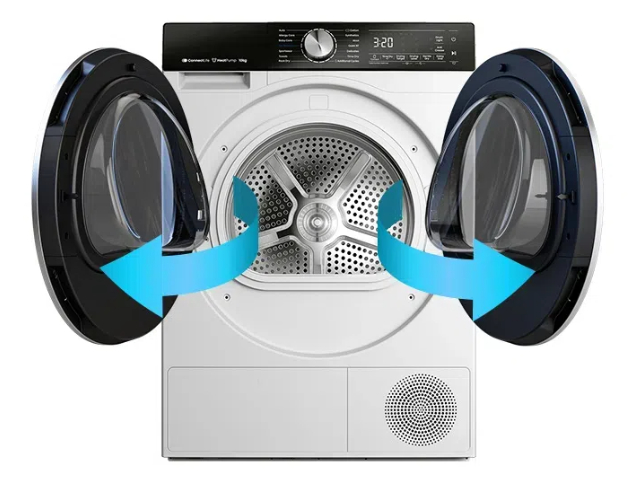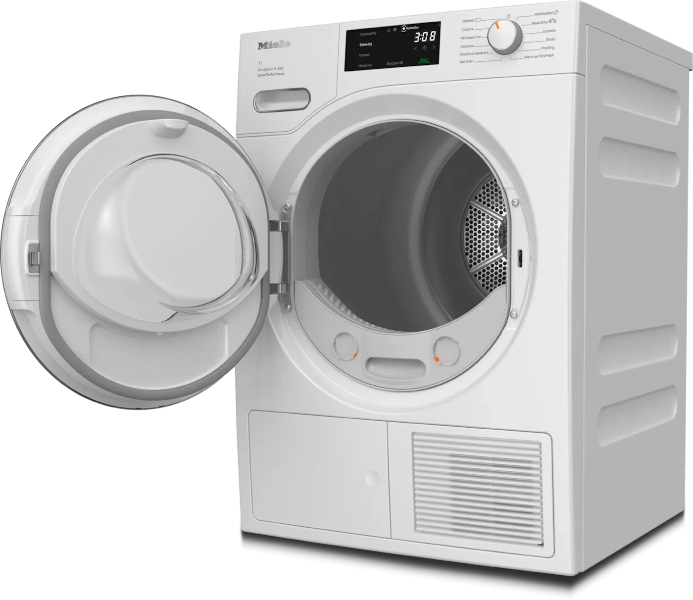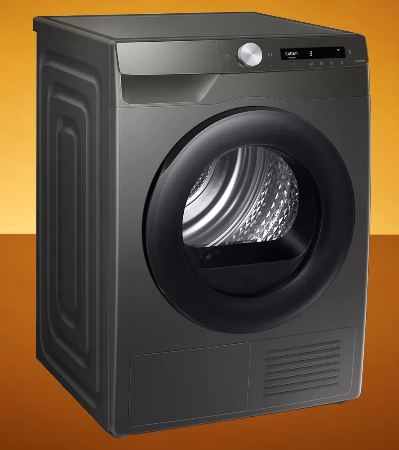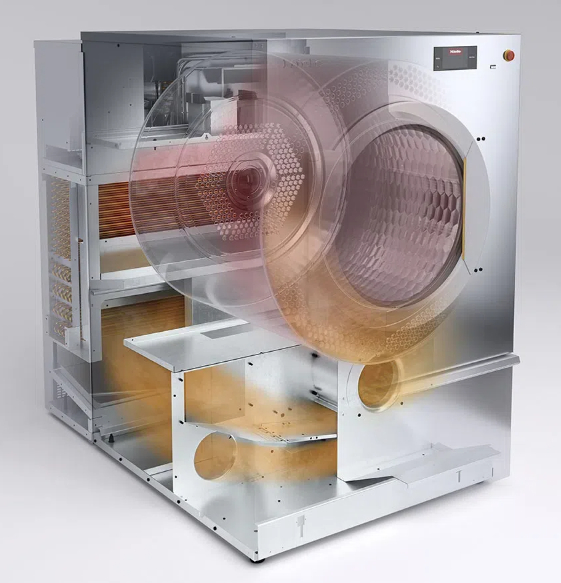
Content Menu
● Introduction to Heat Pump Dryers
● Understanding Heat Pump Dryer Technology
>> How Heat Pump Dryers Work
● The Advantages of Heat Pump Dryers
>> 1. Energy Efficiency
>> 2. Gentle on Clothes
>> 3. Versatile Installation
>> 4. Environmental Impact
● Potential Drawbacks to Consider
>> 1. Higher Upfront Cost
>> 2. Longer Drying Times
>> 3. Maintenance Requirements
● Comparing Heat Pump Dryers to Traditional Models
>> Energy Consumption
>> Drying Time
>> Fabric Care
>> Installation Flexibility
>> Initial Cost
>> Running Costs
● Is the Investment Worth It?
>> 1. Energy Costs in Your Area
>> 2. Frequency of Use
>> 3. Environmental Concerns
>> 4. Available Space
>> 5. Long-Term Perspective
● Choosing the Right Heat Pump Dryer
>> 1. Capacity
>> 2. Energy Ratings
>> 3. Additional Features
>> 4. Brand Reputation and Warranty
>> 5. Size and Design
● The Future of Laundry: Heat Pump Dryers and Beyond
● Conclusion: Making an Informed Decision
● Frequently Asked Questions
>> 1. How much can I save on energy bills with a heat pump dryer?
>> 2. Do heat pump dryers require special maintenance?
>> 3. Can heat pump dryers handle large loads of laundry?
>> 4. Are heat pump dryers suitable for all types of fabrics?
>> 5. How long do heat pump dryers typically last?
Introduction to Heat Pump Dryers
In recent years, the laundry appliance market has seen a significant shift towards more energy-efficient and environmentally friendly options. Among these innovations, heat pump dryers have emerged as a promising technology that's changing the way we think about drying clothes. But the question on many consumers' minds is: is a heat pump dryer worth it? To answer this, we need to delve into the technology behind these appliances, their benefits, and potential drawbacks.
Understanding Heat Pump Dryer Technology
Heat pump dryers operate on a fundamentally different principle compared to traditional vented or condenser dryers. Instead of generating heat and expelling it after use, these innovative appliances recycle hot air, making them significantly more energy-efficient.
How Heat Pump Dryers Work
1. Air Circulation: The process begins with warm air circulating through the drum, absorbing moisture from the clothes.
2. Heat Exchange: The moist air then passes through an evaporator, which cools it and condenses the water vapor.
3. Reheating: The dried air is then reheated by a condenser and circulated back into the drum.
4. Water Collection: Condensed water is collected in a tank or drained directly.
This closed-loop system allows heat pump dryers to operate at lower temperatures while still effectively drying clothes, which brings us to their advantages.

The Advantages of Heat Pump Dryers
1. Energy Efficiency
The most significant advantage of heat pump dryers is their superior energy efficiency. By recycling heat, these appliances can use up to 50% less energy compared to conventional dryers. This efficiency not only reduces your carbon footprint but also translates to substantial savings on your energy bills over time.
2. Gentle on Clothes
Because heat pump dryers operate at lower temperatures, they're gentler on fabrics. This means less wear and tear on your clothes, helping them last longer and maintain their quality, which can be especially beneficial for delicate or expensive garments.
3. Versatile Installation
Unlike traditional vented dryers, heat pump models don't require external venting. This versatility allows for installation in various locations within your home, providing more flexibility in laundry room design and placement.
4. Environmental Impact
With increasing concerns about climate change, the eco-friendly nature of heat pump dryers is a significant selling point. Their reduced energy consumption directly correlates to lower greenhouse gas emissions, making them a more sustainable choice for environmentally conscious consumers.
Potential Drawbacks to Consider
While the benefits of heat pump dryers are substantial, it's important to consider some potential drawbacks before making a decision.
1. Higher Upfront Cost
One of the main hesitations consumers have about heat pump dryers is their higher initial price tag. These appliances can cost significantly more than traditional dryers, which may be a deterrent for budget-conscious shoppers.
2. Longer Drying Times
Due to their lower operating temperatures, heat pump dryers typically take longer to dry clothes compared to conventional models. While this contributes to their energy efficiency and gentler treatment of fabrics, it might be inconvenient for those who prioritize quick laundry cycles.
3. Maintenance Requirements
Heat pump dryers have filters that need regular cleaning to maintain optimal performance. Additionally, the water collection tank (if not directly plumbed) requires emptying after each cycle, which adds an extra step to the laundry process.

Comparing Heat Pump Dryers to Traditional Models
To truly understand if a heat pump dryer is worth it, it's helpful to compare them directly with traditional vented and condenser dryers.
Energy Consumption
- Heat Pump Dryers: Use about 50% less energy
- Traditional Dryers: Higher energy consumption
Drying Time
- Heat Pump Dryers: Longer cycles (typically 1.5 to 2 hours)
- Traditional Dryers: Shorter cycles (usually under 1 hour)
Fabric Care
- Heat Pump Dryers: Gentler on clothes due to lower temperatures
- Traditional Dryers: Can be harsher, especially on delicate fabrics
Installation Flexibility
- Heat Pump Dryers: Can be installed anywhere, no venting required
- Traditional Dryers: Often require external venting, limiting placement options
Initial Cost
- Heat Pump Dryers: Higher upfront investment
- Traditional Dryers: Lower initial cost
Running Costs
- Heat Pump Dryers: Lower long-term operating costs
- Traditional Dryers: Higher energy bills over time
Is the Investment Worth It?
Determining whether a heat pump dryer is worth the investment depends on several factors:
1. Energy Costs in Your Area
If you live in an area with high electricity rates, the energy savings from a heat pump dryer can be substantial, potentially offsetting the higher initial cost more quickly.
2. Frequency of Use
Households that do a lot of laundry will see greater benefits from the energy efficiency of heat pump dryers, as the savings accumulate faster with more frequent use.
3. Environmental Concerns
For those prioritizing eco-friendly living, the reduced carbon footprint of heat pump dryers may justify the higher upfront cost.
4. Available Space
If you have limited space or no option for external venting, the versatility of heat pump dryers can be a significant advantage.
5. Long-Term Perspective
While the initial investment is higher, the long-term savings on energy bills and potential increase in clothing longevity can make heat pump dryers economically advantageous over time.
Choosing the Right Heat Pump Dryer
If you've decided that a heat pump dryer is the right choice for your home, consider the following factors when selecting a model:
1. Capacity
Ensure the dryer's capacity matches your household's needs. Larger families may require models with bigger drums to handle larger loads efficiently.
2. Energy Ratings
Look for models with high energy efficiency ratings to maximize your savings and environmental benefits.
3. Additional Features
Some heat pump dryers come with smart features, multiple drying programs, or steam functions. Consider which features are important for your laundry routine.
4. Brand Reputation and Warranty
Choose reputable brands known for reliability and good customer service. A comprehensive warranty can provide peace of mind for your investment.
5. Size and Design
Ensure the dryer fits your designated space and complements your laundry room aesthetics.
The Future of Laundry: Heat Pump Dryers and Beyond
As technology continues to advance, heat pump dryers are likely to become even more efficient and affordable. The trend towards energy-efficient appliances is not just a passing phase but a necessary evolution in our approach to household energy consumption.
Manufacturers are continuously improving heat pump technology, addressing some of the current limitations such as longer drying times. We can expect future models to offer even better performance while maintaining their energy-saving benefits.
Moreover, as awareness of environmental issues grows and energy costs continue to rise, the adoption of heat pump dryers is likely to increase. This could lead to more competitive pricing and a wider range of options for consumers.
Conclusion: Making an Informed Decision
So, is a heat pump dryer worth it? The answer depends on your specific circumstances, priorities, and long-term outlook. For many households, especially those with high energy costs, frequent laundry needs, or a strong commitment to reducing their environmental impact, heat pump dryers can be an excellent investment.
While the higher upfront cost may be a hurdle, the long-term savings on energy bills, combined with the gentler treatment of clothes and the flexibility in installation, make heat pump dryers an attractive option for many consumers.
As with any significant appliance purchase, it's essential to do your research, consider your specific needs, and perhaps even calculate the potential savings based on your household's laundry habits and local energy costs.
Ultimately, heat pump dryers represent a step towards more sustainable and efficient home appliances. Whether they're worth it for you will depend on how you value their benefits against their initial cost and any potential inconveniences. For many, the long-term advantages will outweigh the short-term investment, making heat pump dryers a smart choice for the future of laundry.

Frequently Asked Questions
1. How much can I save on energy bills with a heat pump dryer?
Answer: Energy savings can be significant, typically around 50% compared to traditional dryers. The exact amount depends on your usage and local energy costs, but many users report saving $30-$50 per year on their energy bills.
2. Do heat pump dryers require special maintenance?
Answer: While they don't require extensive maintenance, heat pump dryers do need regular filter cleaning and emptying of the water collection tank (if not plumbed directly). These tasks are simple but essential for maintaining the dryer's efficiency.
3. Can heat pump dryers handle large loads of laundry?
Answer: Yes, many heat pump dryers come in various capacities, including larger models suitable for family-sized loads. However, due to their longer drying times, it's important to choose a capacity that matches your household needs.
4. Are heat pump dryers suitable for all types of fabrics?
Answer: Heat pump dryers are generally gentler on all fabric types due to their lower operating temperatures. They're particularly beneficial for delicate fabrics and can help extend the life of your clothes.
5. How long do heat pump dryers typically last?
Answer: With proper maintenance, heat pump dryers can last 10-15 years or more. Their durability, combined with energy savings, can make them a cost-effective choice in the long run despite the higher initial investment.












